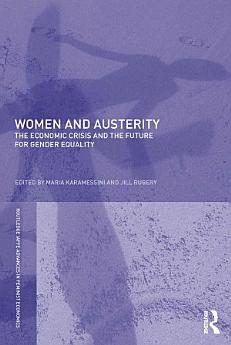Women and Austerity: The Economic Crisis and the Future for Gender Equality
About this ebook
The contributions adopt a common framework to analyse women in recession, which takes into account changes in women’s position and current austerity conditions. The findings demonstrate that in the immediate aftermath of the financial crisis, employment gaps between women and men declined — but due only to a deterioration in men’s employment position rather than any improvements for women. Tables are set to be turned by the austerity policies which are already having a more negative impact on demand for female labour and on access to services which support working mothers. Women are nevertheless reinforcing their commitment to paid work, even at this time of increasing demands on their unpaid domestic labour.
Future prospects are bleak. Current policy is reinforcing the same failed mechanisms that caused the crisis in the first place and is stalling or even reversing the long term growth in social investment in support for care. This book makes the case for gender equality to be placed at the centre of any progressive plan for a route out of the crisis.
About the author
Maria Karamessini is Professor of Labour Economics and Economics of the Welfare State at Panteion University of Social and Political Sciences, Greece. She is also Director of the Centre for Gender Studies at the University. She has published extensively on labour market issues, employment and social policy, gender inequalities in paid work and equality policy.
Jill Rubery is Professor of Comparative Employment Systems at Manchester Business School, UK. She is also founder and Co-Director of the European Work and Employment Research Centre. She has published widely on comparative employment systems, gender equality and labour market segmentation.





